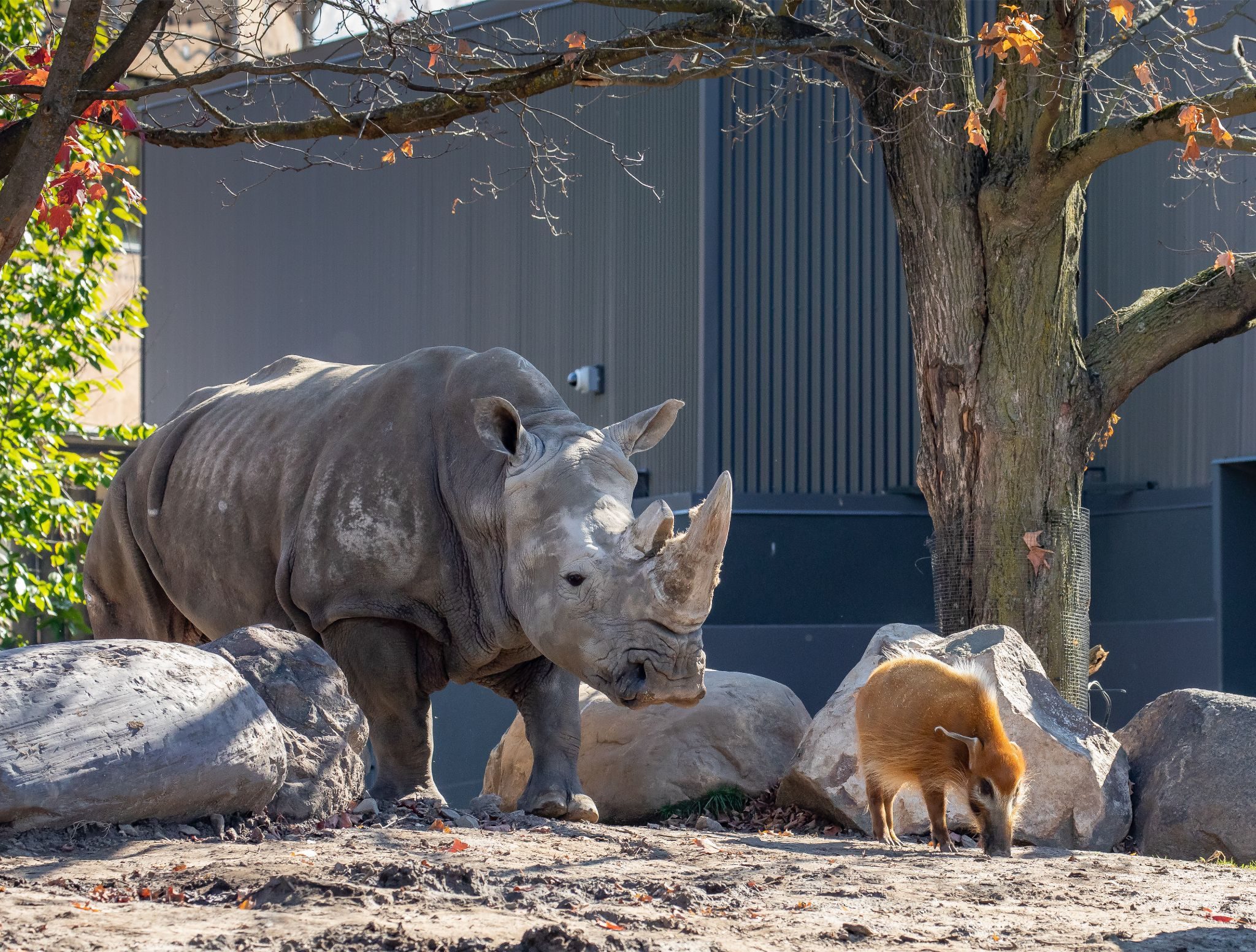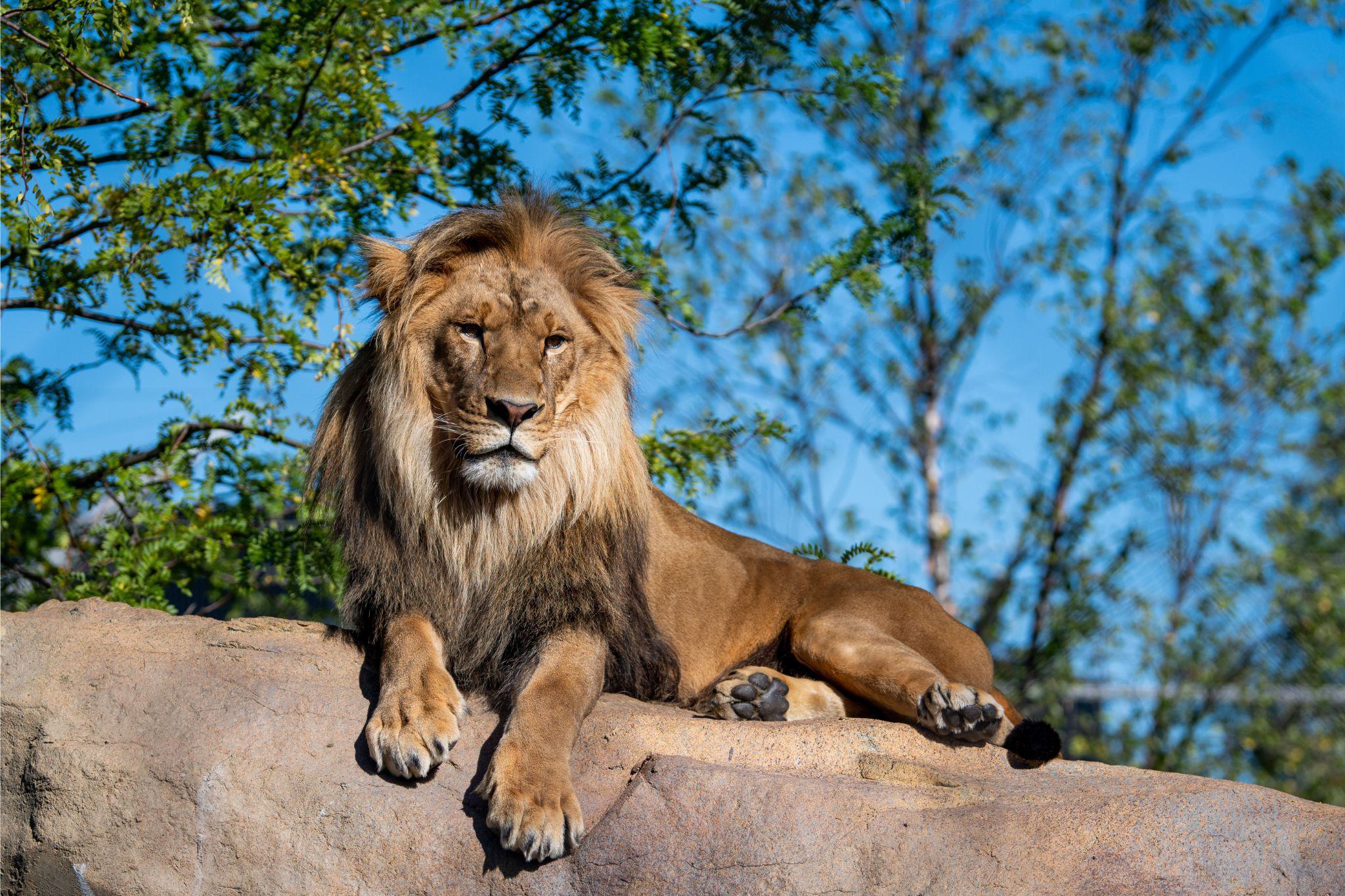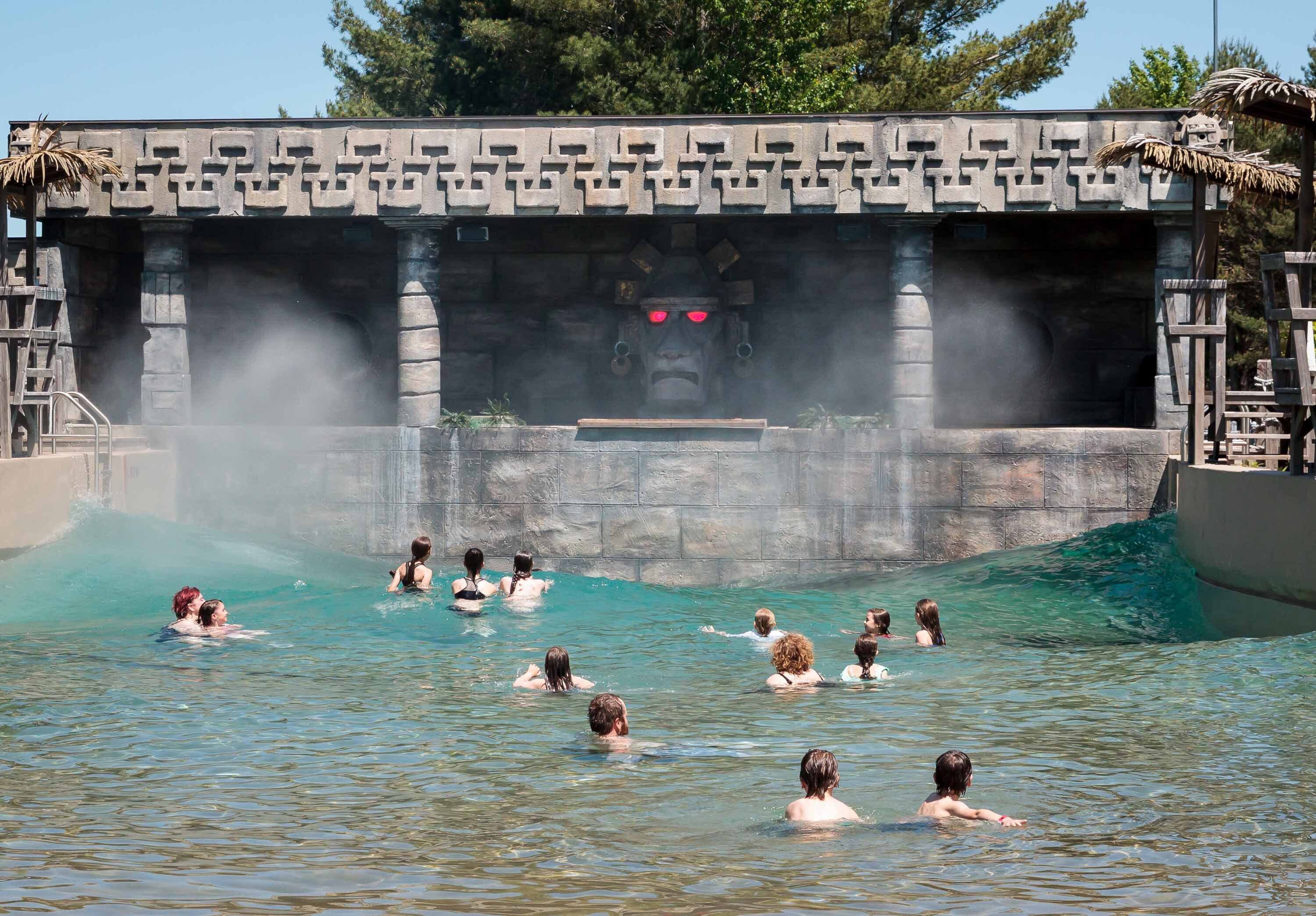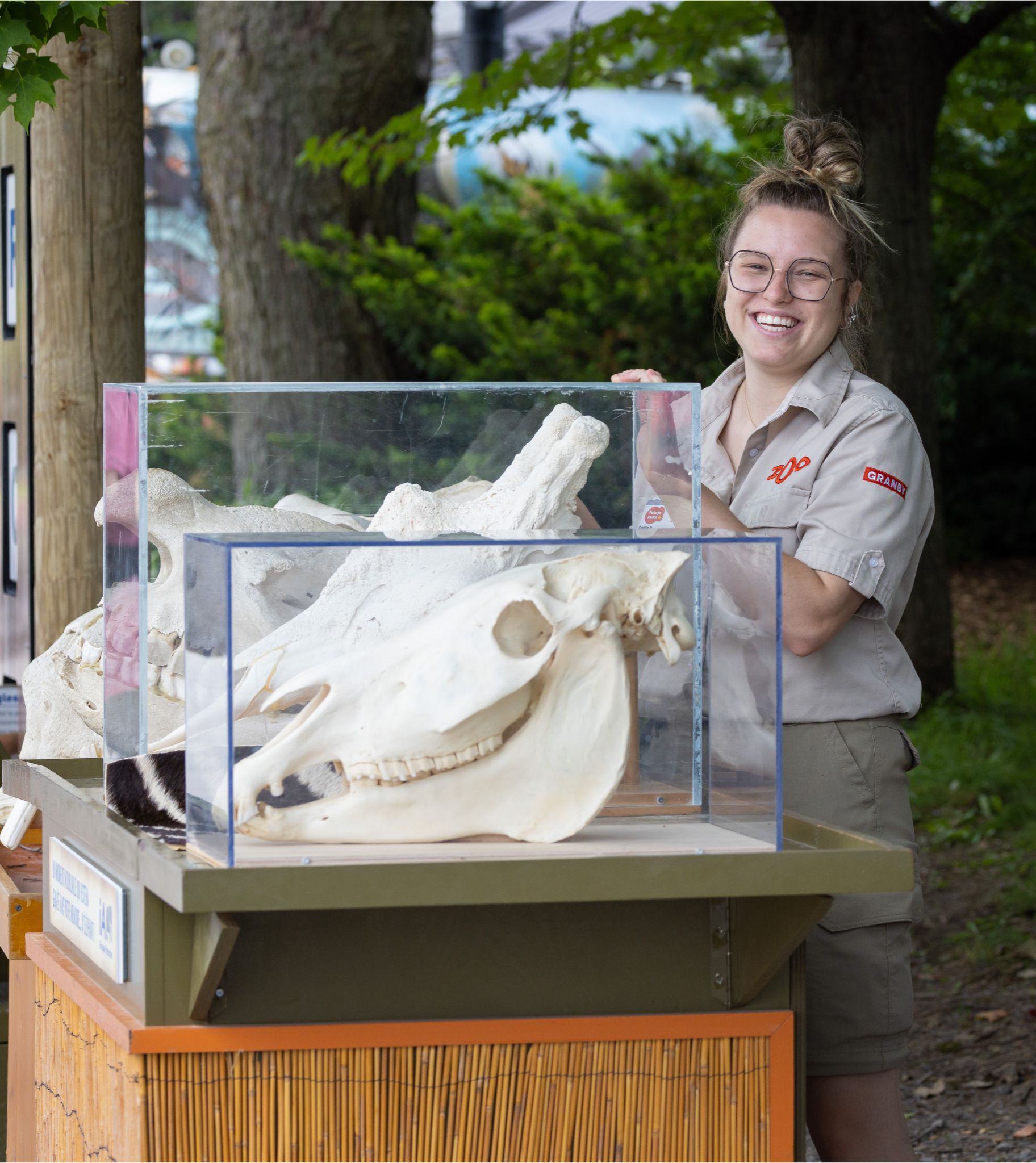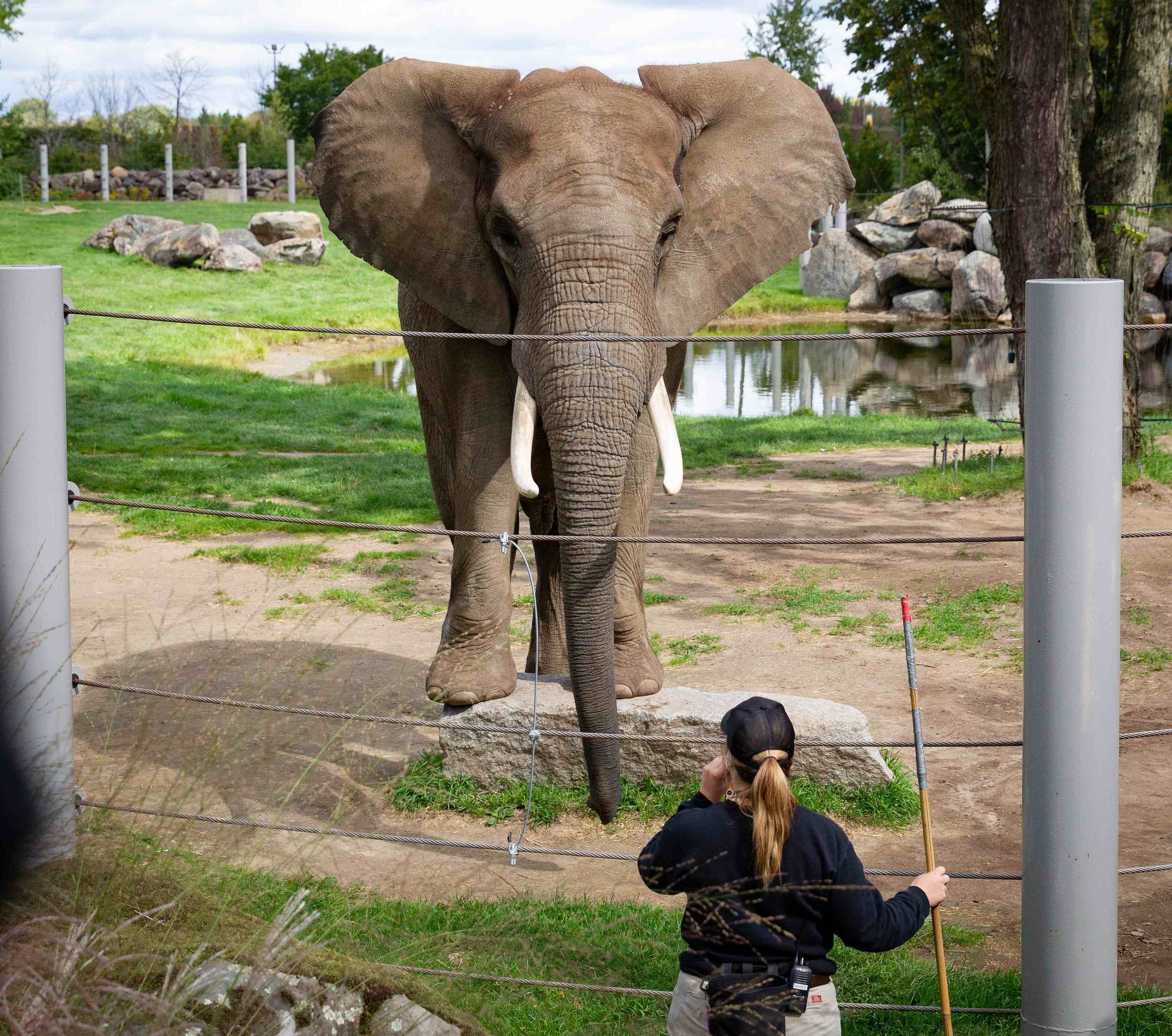Zoo de Granby Mourns the Loss of One of Its Most Iconic Elders
Press release
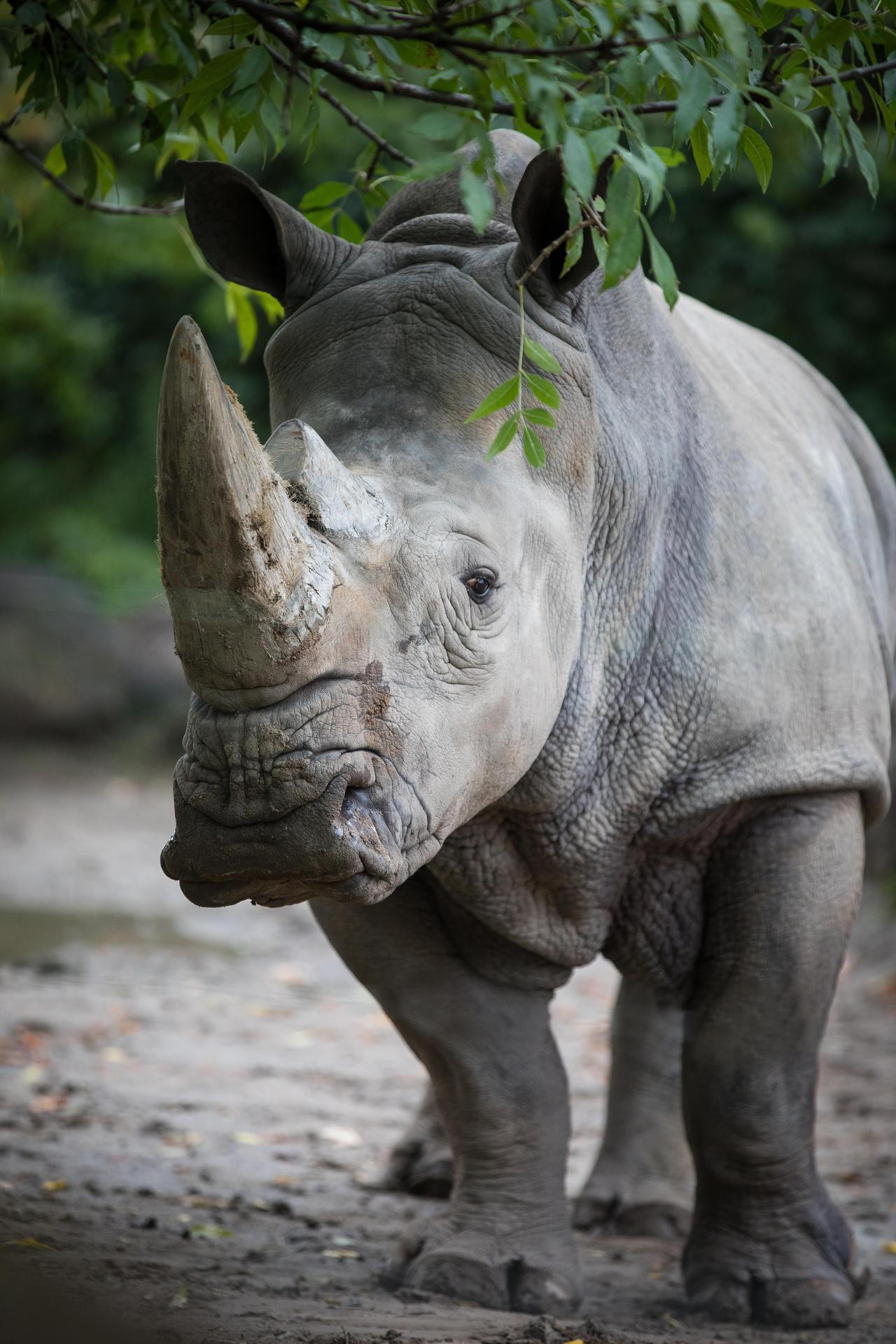
Goodbye Shaboola
Granby, February 5, 2025 – Some news is more painful to share than others: it is with a heavy heart that Zoo de Granby said its final goodbyes this morning to Shaboola, the female white rhinoceros under its care since 2012. At 45 years old, Shaboola was the very first white rhino born in Canada, at the Toronto Zoo. She was undoubtedly a star animal at the Zoo, dear to the hearts of the employees and the large community of our zoological institution. Her medical condition had deteriorated in recent weeks, significantly affecting her quality of life, and the decision was made by our animal care experts to gently guide her to her last breath.
The First White Rhinoceros Born in Canada
Shaboola was born at the Toronto Zoo on October 13, 1979. Just a few hours old, she was already receiving media attention as the very first white rhinoceros born in Canada. In 2012, she joined Zoo de Granby to keep company with K.C., a young, energetic male then aged 9. Even in Toronto, Shaboola was perceived by her keepers as a gentle and calm animal, a personality that transcended at the Zoo: many developed a deep attachment to the beautiful Shaboo.
The average lifespan of a white rhinoceros is about 36 years: at 45, Shaboola was the oldest individual in a zoological environment in Canada and the third oldest female in North America. It is notably due to the quality of care, the dedication of the animal care staff, and the quality of the facilities she benefited from that Shaboola was able to enjoy nearly half a century of a peaceful life, punctuated by multiple small pleasures granted daily by her technicians: everyone took great care of her.
Health Issues
At 45, Shaboola had been classified as a geriatric animal for several years and received special veterinary attention. Like humans, the pachyderm carried age-related health issues: numerous accommodations were made over time to make her daily life more comfortable. Unfortunately, in recent weeks, her overall health declined to the point where it became difficult for our animal experts to relieve her.
Shaboola lived with suspected osteoarthritis (arthritis), for which she had been receiving pain treatments for nearly a decade. She also had chronic foot problems, requiring several interventions under anesthesia over the years. Over time, her mobility decreased, making her movements more difficult and progressively affecting her overall condition. In parallel, severe dental issues, chronic kidney failure, and other complications impaired her quality of life. "We saw her quality of life decline despite all the care provided over the years. Regardless of her age, our priority has always been her well-being. Euthanasia is not a failure, quite the contrary: it is an essential tool among the care we can offer animals. It is also one of the most altruistic acts we can perform to prevent Shaboola from suffering further," explains Dr. Cédric Larouche, veterinarian at Zoo de Granby. Faced with this deterioration and the inability to adequately alleviate her pain, the veterinary team decided to accompany her to a gentle end of life.
The Future of White Rhinoceroses at Zoo de Granby
With Shaboola's passing, the question of the future of her companion K.C. arises. On this front, good news is on the horizon: indeed, Zoo de Granby had already been in the process since 2024 to bring in two new females from an accredited American institution, with a breeding recommendation. If all administrative procedures go smoothly, they should settle in Granby this spring. K.C. will not be alone for long.
The white rhinoceros is a species nearly threatened with extinction in the wild, according to the International Union for Conservation of Nature (IUCN): it is estimated that there are about 10,000 individuals left in the world. The pachyderm is still poached for its keratin horn, which is believed to have therapeutic and medicinal properties in some regions of the globe.
Nearly 47 accredited zoological institutions collaborate on the Species Survival Plan (SSP) aimed at maintaining a viable and genetically healthy population of this charismatic animal. Zoo de Granby is proud to participate in the conservation efforts of the white rhinoceros and to maintain the hope of saving the species from extinction. Over time, Shaboola contributed to raising awareness of the critical situation of these magnificent animals in the wild: in her name, we will continue this mission.
About Zoo de Granby
Zoo de Granby is a non-profit organization, founded in 1953, whose mission is to act to preserve the animal world. It participates in about thirty species survival plan (SSP) programs and hosts more than forty species with at-risk status. Zoo de Granby participates in about twenty conservation projects in Quebec and around the world.
www.zoodegranby.com | www.missionfaune.zoodegranby.com
- -
For information
Hélène Bienvenue
Director, Sales, Communication, and Marketing
450-775-8617 | hbienvenue@zoodegranby.com








